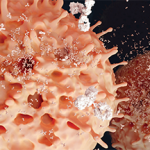LONDON—Kinase inhibitors’ profile in the world of rheumatic disease therapy is growing, and they are probably going to play an even larger and more central role as time goes on, experts said at the Annual Congress of the European League Against Rheumatism (EULAR) 2016. But Gary S. Firestein, MD, director of the Clinical and Translational…







